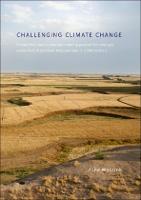Challenging climate change
Competition and cooperation among pastoralists and agriculturalists in northern Mesopotamia (c. 3000-1600 BC)
Author(s)
Wossink, Arne
Collection
Dutch Research Council (NWO)Language
EnglishAbstract
Throughout history, climate change has been an important driving force behind human behaviour. This archaeological study seeks to understand the complex interrelations between that behaviour and climatic fluctuations, focussing on how climate affected the social relations between neighbouring communities of occasionally differing nature. It is argued that developments in these relations will fall within a continuum between competition on one end and cooperation on the other. The adoption of a particular strategy depends on whether that strategy is advantageous to a community in terms of the maintenance of its well-being when faced with adverse climate change. This model will be applied to northern Mesopotamia between 3000 and 1600 bc. Local palaeoclimate proxy records demonstrate that aridity increased significantly during this period. Within this geographical, chronological, and climatic framework, this study looks at changes in settlement patterns as an indication of competition among sedentary agriculturalist communities, and the development of the Amorite ethnic identity as reflecting cooperation among sedentary and more mobile pastoralist communities.
Keywords
Near Eastern archaeology; Mesopotamia; palaeoclimate; climatic fluctuations; climate change; pastoralist communities; sedentary communitiesPublisher
Sidestone PressPublisher website
https://www.sidestone.com/Publication date and place
Leiden, 2009Imprint
Sidestone Press DissertationsClassification
Archaeology by period / region
Middle East


 Download
Download Web Shop
Web Shop